Here's a simple infographic describing Autism Spectrum Disorder and how you can support someone with…
7 Easy Ways To Be Supportive Of Someone With Autism
April is autism awareness month! I’m going to try to post more about our family’s experience with autism but I might get lazy so don’t expect too much. Hugs and kisses to you huhu.
Being supportive of anyone depends on the individual, so this is a pretty general list of ways to be supportive of an autistic person. As always, this is 100% based on my personal experience with Ayub, it may be different for you 🙂

1. Allow them to stim
Stimming helps keep the individual calm. Most of the time, the individual doesn’t even know that they are stimming. Unless it’s very distracting to others or a danger to the individual and/or others, I would say just let them stim.
Stimming tends to be a repetitive action e.g. hand flapping, humming, pacing, cleaning etc.
Ayub has gone through different types of stimming, both physical and verbal. They are harmless but sometimes mildly annoying. Bouncing on his chair, pinching his thumb and fingers together, repeating gibberish under his breath.
It helps keep him calm and I see it as a way for him to self-regulate his emotions. He’s generally grown out of each stim and into a new one.
2. Stick to a schedule
Predictability is key to growth for Ayub. Sudden changes and ‘surprises’ can trigger meltdowns. Even well-intended surprises.
Ayub had meltdowns from the time he was a baby. It wasn’t until I put him on a schedule that he did much better. For example, he HAD to drink a bottle of milk every 3 hours on the dot, HAD to be in his sling to take a nap from this time til this time, HAD to have his bath at the same time every day etc. And this was when he was only a few months old.
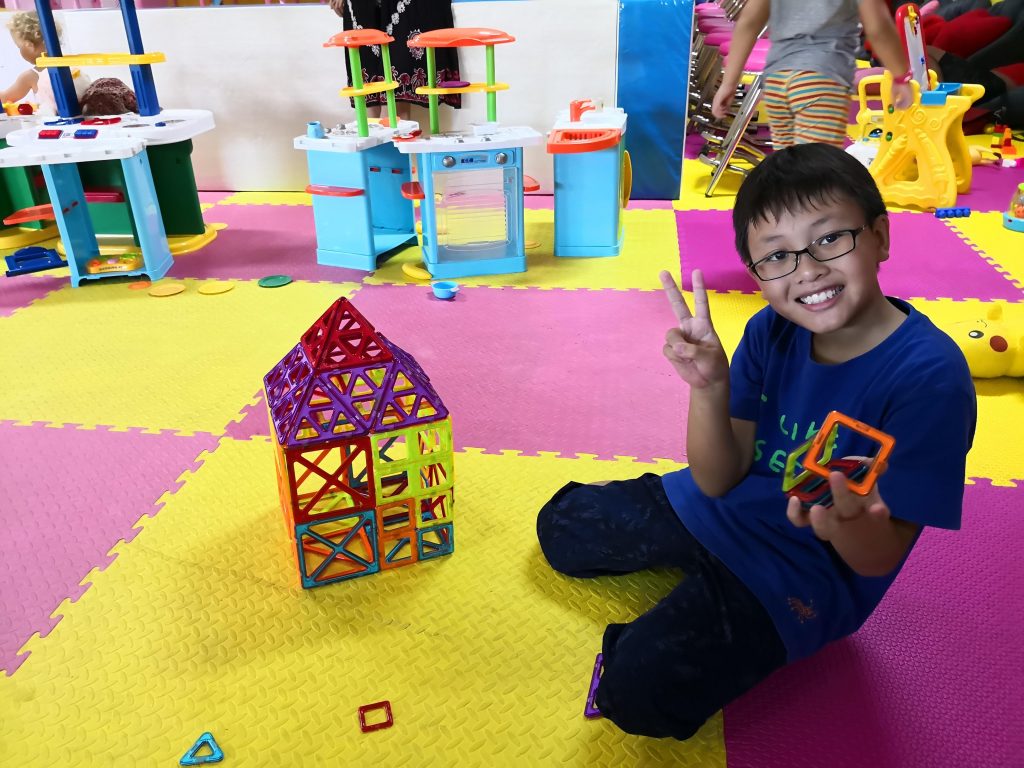
As a young kid, he went back to having a lot of meltdowns due to an unstable home life. Sorry Ayub. I didn’t know then that he had special needs. Once I met Mr Ninja and our house became a home and our little family stabilised, Ayub did so much better.
For the past five years, this has pretty much been his schedule:
- 7.30am – Wake up, shower, get dressed
- 8.00am – Cereal and milk for breakfast
- 8.30am – Go to school, class, recess, class, lunch
- 2.30pm – Back home, play time
- 6.00pm – Shower, homework
- 7.00pm – Dinner, homework, relax time
- 8.30pm – Bed
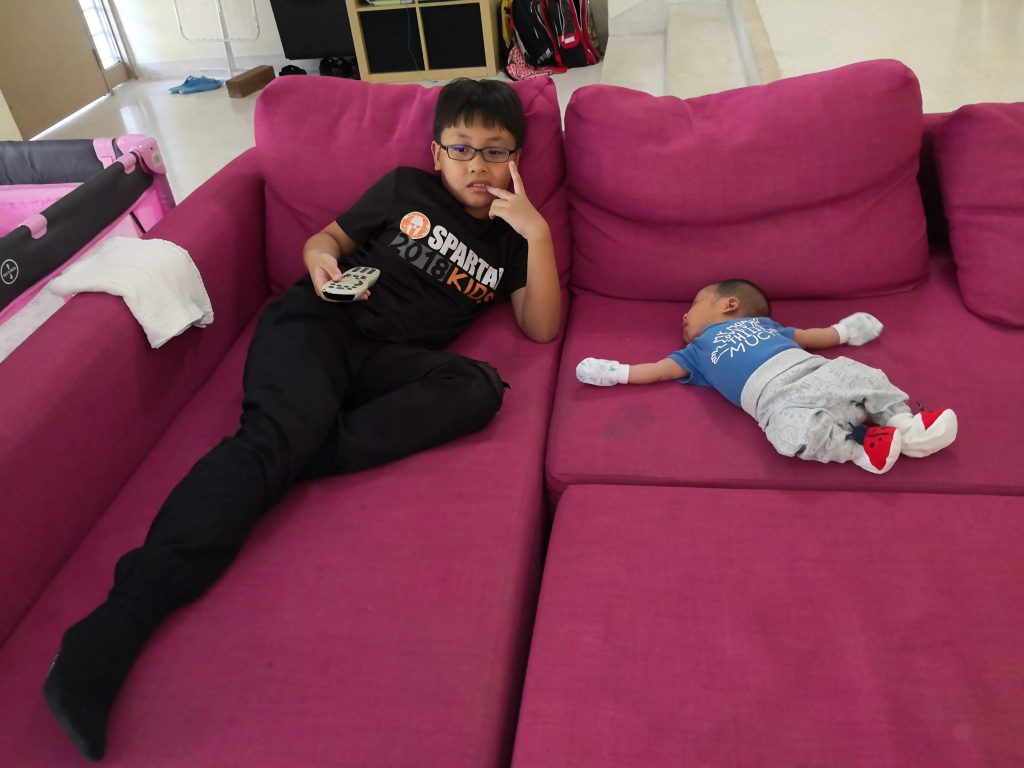
3. Be patient
It can take time to process new information. Answer questions, give them space, give them time. They get there eventually.
Talking to Ayub requires patience. He hears you, but it takes time for those sound waves to reach his brain and for his brain to make sense of what you just said, and more time for him to formulate a response.
Patience in everything they do.
Ah, easier said than done. This is something I continue to struggle with. I am a super short-tempered, hot-tempered, bad-tempered person. I snap. Fast. I’ve tried to hold it back and I think I’m a bit better now. But.
Poor Ayub. He’s been at the receiving end of my short temper far too many times.
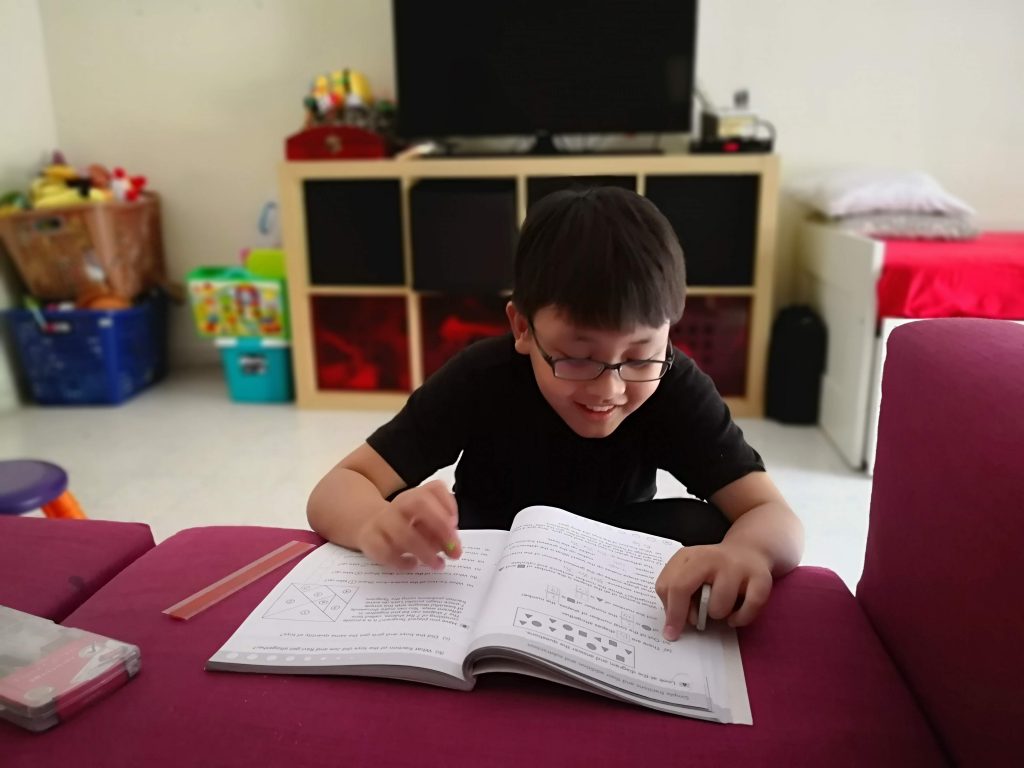
Homework used to be a painful experience for both of us. But to me it was easy, but to him it was impossible. Because he thinks everything is impossible for him, but it’s not.
Once I got over myself and talked him through problems bit by bit, giving him multiple options for answers, rephrasing questions using words he was comfortable with, things became easier. Now he’s at a point where he can complete homework independently. And he knows if he gets stuck, I’ll help him through it.
4. Respect their comfort zones
Don’t be pushy if a person doesn’t want to be challenged. Remember, predictability helps them grow. Step out of comfort zones a little at a time, if at all.
‘Stepping out of your comfort zone’ is overrated anyway.
Respect their desire for space and alone time. Very important. That’s why we made sure Ayub has his own bedroom, his safe space, to let go when he needs to. He’s not an introvert, but when he’s been out in the world for so many hours, he needs alone time to like reboot.

5. Understand sensory needs
For example, avoid loud places if they are sensitive to noise or invest in noise-reduction headphones. Ayub used to freak the ef out when he heard repetitive background noises. Sounds that didn’t even register to the rest of us. It would drive him to a meltdown.
Food is also a sensory issue. Ayub used to be a super fussy eater but has since become more adventurous and open to trying new food. He most likely won’t like that new food, but he’ll take a bite. Then he’ll say “ya I don’t like that.” And that will be that.
It takes time. Don’t force it.

6. Support their interests
From experience with other autism families, there’s a trend you can see with autistic individuals and a certain level of obsession they have with their very specific interests. Some interests might seem pretty kooky and you may not understand what the heck is going on, but as long as it doesn’t hurt anyone, I think it’s important to be supportive of them.

Ayub loves insects so we helped him launch his business ‘Bugging Out’ and also provided him lots of reading material and YouTube shows on insects in general. He also loves guns. Not something I’m a fan of, at all. But he really really really loves his toy guns.
And finally, there’s LEGO. His natural ability to build creations prompted us to seek out a LEGO class (which he has been attending for 3 years) and buying him lots of little LEGO sets over the years.
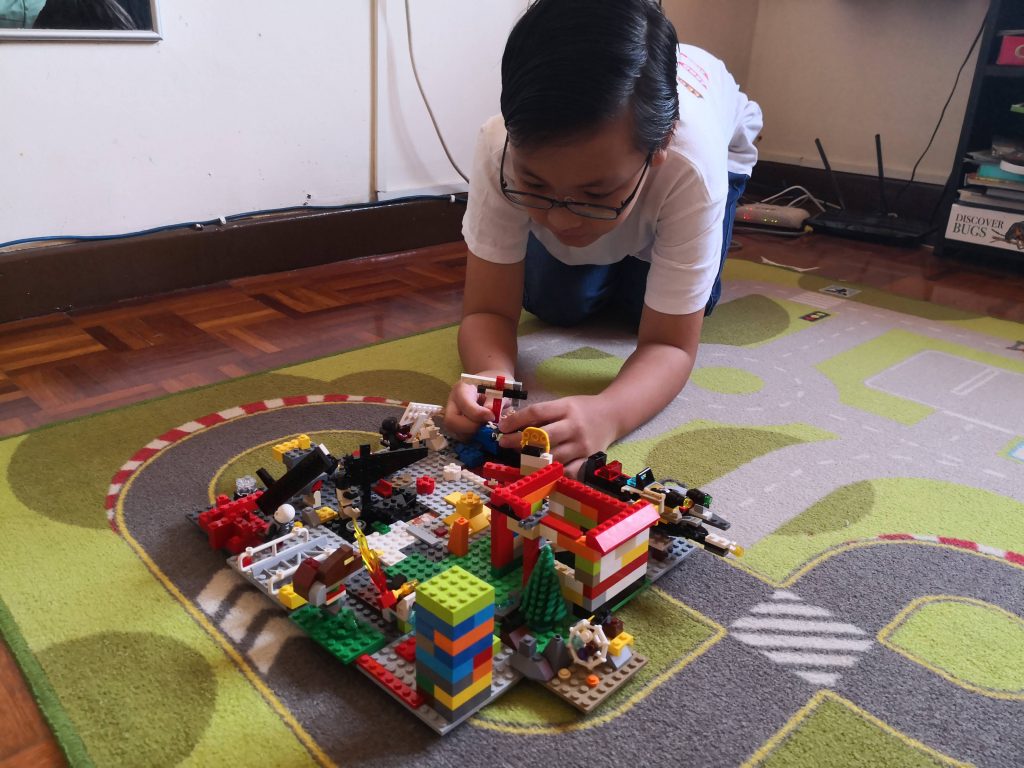
7. Know that autism is a spectrum
People with autism are individuals with different symptoms and needs.
Just because Ayub is this way, doesn’t mean that ALL autistic people are the same. The best way to be supportive of an autistic person is to talk to them and listen to what they have to say.




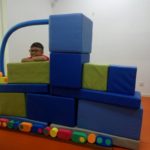


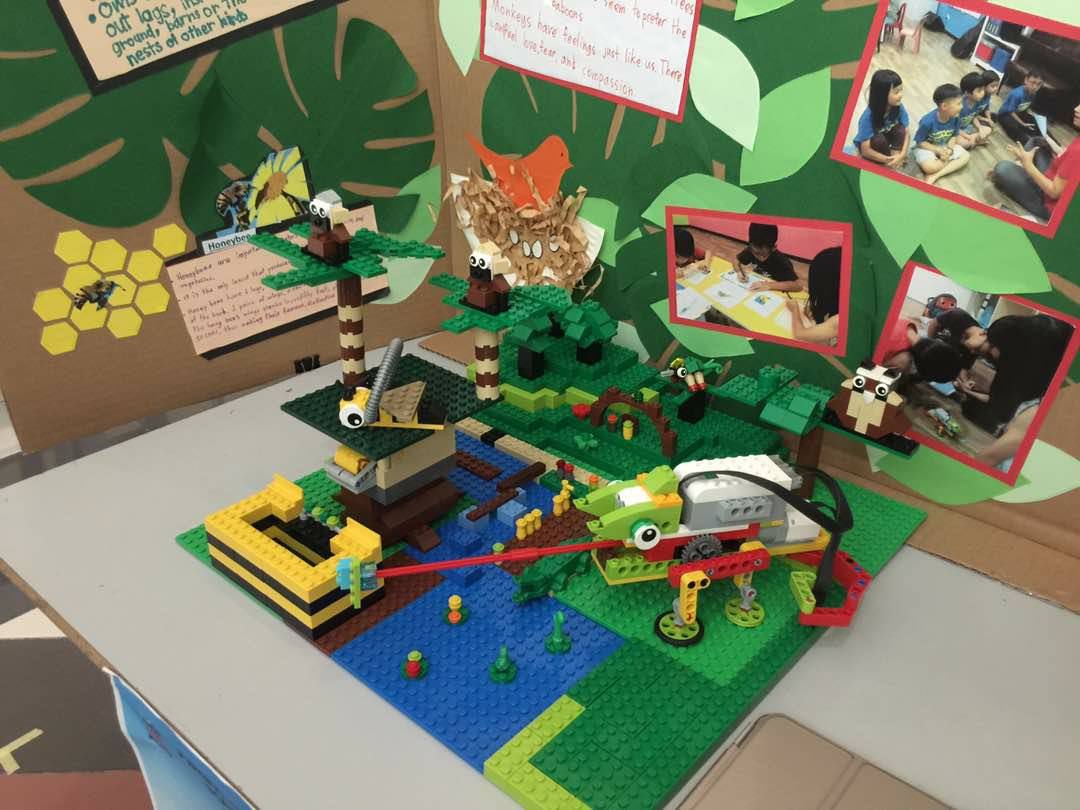













Facebook Comments